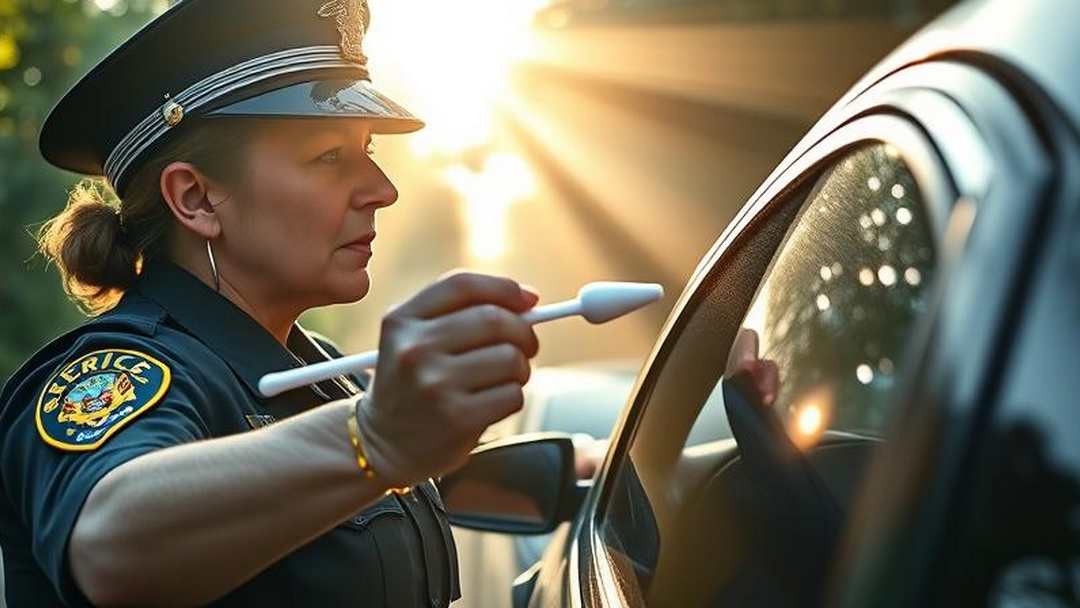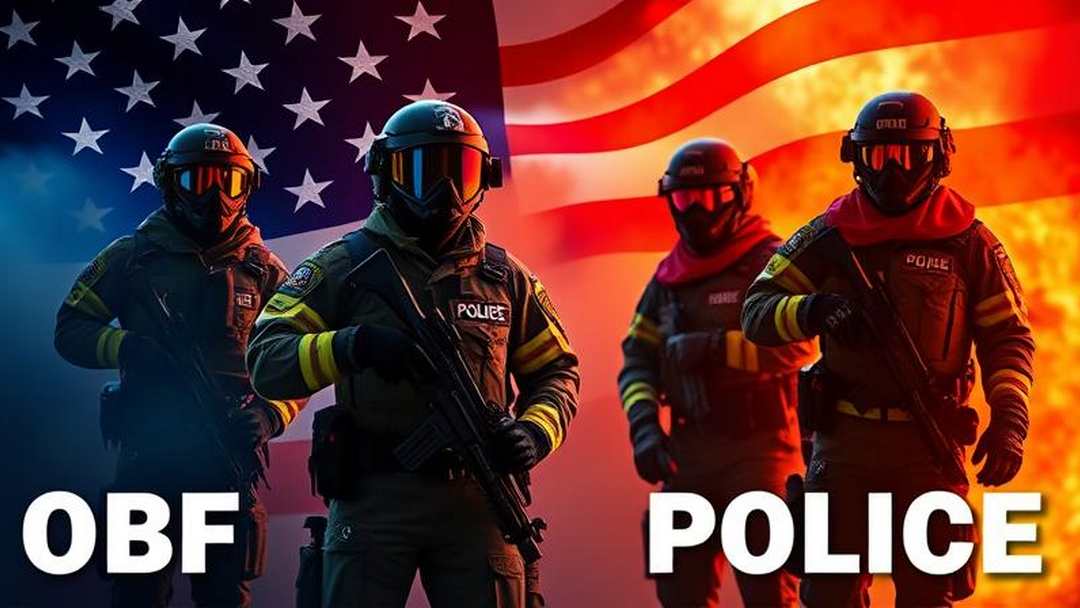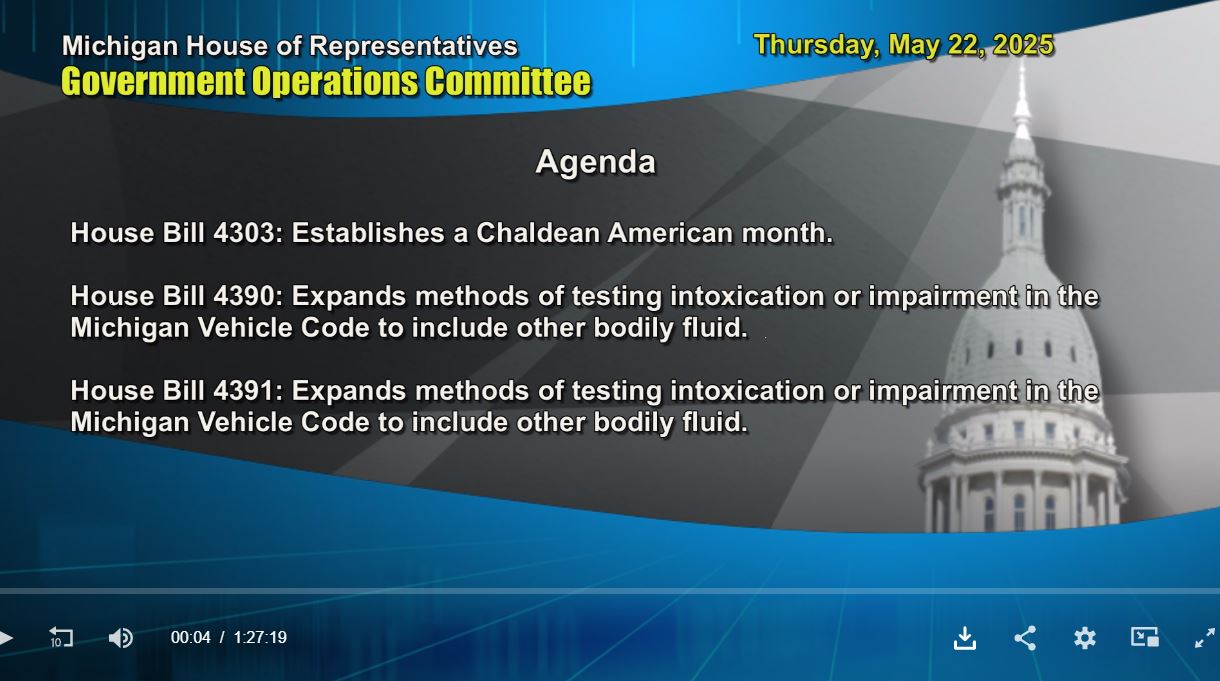Michigan Criminal Laws FAQs Assault and BatteryAccording to Michigan State Law, Assault and Battery are distinct but often related offenses. There isn't one single statute that explicitly defines both terms together. Instead, their definitions have evolved through...

Michigan lawmakers want to revive “junk science” roadside drug testing
The Roadside Drug Test…Again
The proposed House bills 4390 and 4391 would enable law enforcement to administer tests aimed at assessing driver impairment; however, these testing devices do not provide information regarding the level of impairment. Instead, they solely indicate the presence of specific drugs.
The legislation received unanimous approval from the Government Operations Committee on May 22, 2025.
Between 2018 and 2020, the Michigan State Police carried out two pilot programs involving roadside drug detection devices, with the latter program incurring costs of $626,000 and resulting in a notable number of inaccuracies.
The Sotoxa Mobile Test System devices utilized in the pilot programs were manufactured by Abbott and are priced at approximately $6,000 each, leaving uncertainty about which devices will be authorized if the new legislation is enacted.
The findings from the 2020 pilot program revealed that almost 11 percent of tests yielded false positives or false negatives, demonstrating a lack of alignment with the outcomes of subsequent blood tests.
Julie Rogers, D-Kalamazoo is one who sponsored HB 4391
She called the test “a complementary tool” that supports officers “when formulating reasonable suspicion or probable cause determinations.”
A good reason to keep your Medical Marijuana Membership Card
The wording in the proposed legislation allows law enforcement to make arrests based solely on the results of roadside saliva tests according to the bill analysis, but the presence of THC may linger in saliva for hours after after the high is gone studies have found.
MLive discussed the topic with drugged and drunk-driving attorney Michael Komorn, who’s been an outspoken critic of roadside saliva testing. He maintains his position.
“Don’t spit,” he said, “because the spit tests are junk science.”
Some excerpts from the introduced bill and fiscal analysis (full document links below)
(d) Except as provided in subsection (5), a person who refuses
to submit to a preliminary chemical breath analysis or a
preliminary oral fluid analysis upon a lawful request by a peace
officer is responsible for a civil infraction.
(5) A person who was operating a commercial motor vehicle and who refuses to submit to a preliminary chemical breath analysis or a preliminary oral fluid analysis upon a peace officer’s lawful request is guilty of a misdemeanor punishable by imprisonment for not more than 93 days or a fine of not more than $100.00, or both.
(9) A person’s refusal to submit to a chemical test as
provided in subsection (6) is admissible in a criminal prosecution
for a crime described in section 625c(1) only to show that a test
was offered to the defendant, but not as evidence in determining
the defendant’s innocence or guilt. The jury must be instructed
accordingly.
(i) Forward a copy of the written report of the person’s
refusal to submit to a chemical test required under section 625d to
the secretary of state.
(ii) Notify the secretary of state by means of the law
enforcement information network that a temporary license or permit
was issued to the person.
(iii) Destroy the person’s driver license or permit.
Violations could be either civil infractions, misdemeanors, or felonies,
depending on the circumstances. The majority of revenue received from payment of fines for civil infractions would increase funding for public and county law libraries.
Komorn Law
Charged Driving High? – Better Call Komorn
Past Articles
- Roadside Drug Testing Expands to All Counties in Michigan (2019)
- Michigan roadside drug testing device and procedures explained
- Defense attorneys say drivers should refuse Michigan’s new roadside drug tests (2020)
- It may just be easier to collect and analyze tears.
- Michigan lawmakers want to revive roadside drug testing. Critics say, ‘Don’t spit’ (2025)
Another way to get DNA?
Komorn Law
Areas of Service
We fight for our clients throughout the State of Michigan and Northern Ohio.
Here are some court contacts we frequently handle cases.
Oakland County
If you are facing any legal charges in Oakland County and need to hire an attorney, call our Office (248) 357-2550. If you need to contact the court, here is the information:
- Telephone Number: (248) 858-0344
- Address: 1200 N Telegraph Rd, Department 404, Pontiac, MI 48341-0404
- Website:
Oakland County 6th Judicial Circuit Court
Macomb County
If you are facing any legal charges in Macomb County and need to hire an attorney, call our Office (248) 357-2550. If you need to contact the court, here is the information:
- Telephone Number: (586) 469-5150
- Address: 40 N. Main Street, Mt. Clemens, MI 48043
- Website:
Macomb County 16th Judicial Circuit Court
Wayne County
If you are facing any legal charges in Wayne County and need to hire an attorney, call our Office (248) 357-2550. If you need to contact the court, here is the information for the Third Circuit Court (Wayne County):
- Telephone Number (Civil/Family): (313) 224-5510
- Telephone Number (Criminal): (313) 224-5261 or (313) 224-2503
- Address (Civil/Family): 2 Woodward Avenue, Detroit, MI 48226
- Address (Criminal): 1441 St. Antoine, Detroit, MI 48226
- Website:
https://www.3rdcc.org/
Kent County
If you are facing any legal charges in Kent County and need to hire an attorney, call our Office (248) 357-2550. If you need to contact the court, here is the information:
- Telephone Number: (616) 632-5220
- Address: 180 Ottawa Avenue NW, Grand Rapids, MI 49503
- Website:
Kent County
Traverse County
If you are facing any legal charges in Traverse County and need to hire an attorney, call our Office (248) 357-2550. If you need to contact the court, here is the information for the 13th Circuit Court (which includes Traverse County):
- Telephone Number: (231) 922-4701
- Address: 328 Washington Street, Suite 300, Traverse City, MI 49684
- Website: Traverse City 13h Circuit Court
Monroe County
If you are facing any legal charges in Monroe County and need to hire an attorney, call our Office (248) 357-2550. If you need to contact the court, here is the information:
- Telephone Number: (734) 240-7020
- Address: 106 E First Street, Monroe, MI 48161
- Website: Monroe County 38th Circuit Court





